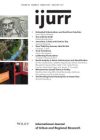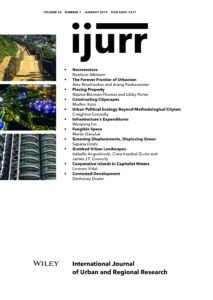Urban research has long maintained that an unwavering link exists between urbanization and infrastructures, with the latter serving as structuring devices that give material and discursive shape to a city’s socio‐ecological composition. But, while infrastructures’ mediative power and consequent ecological effects are well established, present scholarship tends to associate them with only a specific set of metabolisms—namely, those tied to urban (re)production—at the expense of wider capitalist projects that may exceed discrete urbanisms. Complexifying this view, this article posits that infrastructures can constitute larger systems and frameworks that help capital achieve networked forms of accumulation. Specifically, it follows recent theorizations on the technosphere—artificialized environments of interacting systems—to demonstrate how infrastructures help drive particular dispositions and modes of production and consumption beyond cities. Through documentary analyses and interviews with industry players, the article uses the emergent food cargo business at Singapore’s Changi Airport as an empirical case to exemplify the enfolding of one such technosphere through infrastructures. It shows how paying heed to these technospheric formations exposes hidden expenditures—in this instance, of land, energy and labour—that not only underpin a global regime of (food) circulation, but also result in additional socio‐ecological costs often omitted in urban research.

